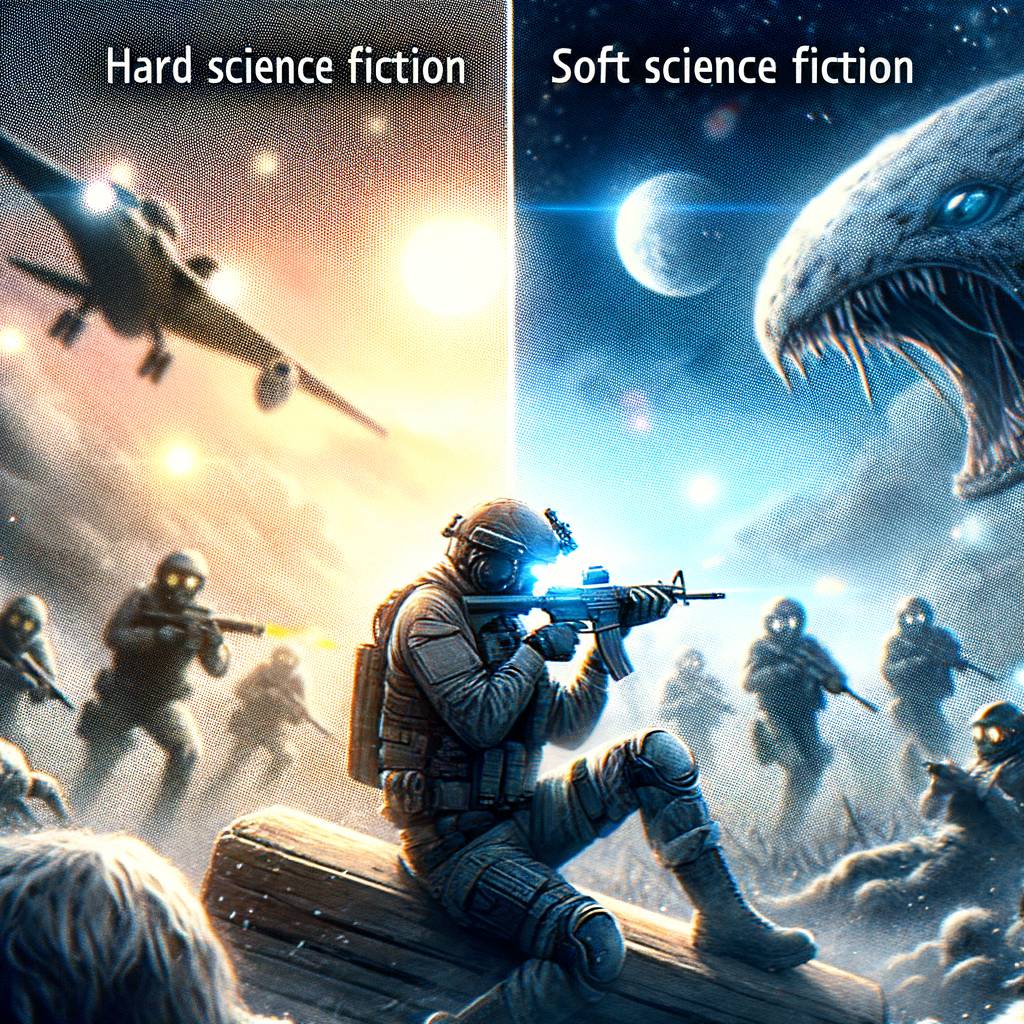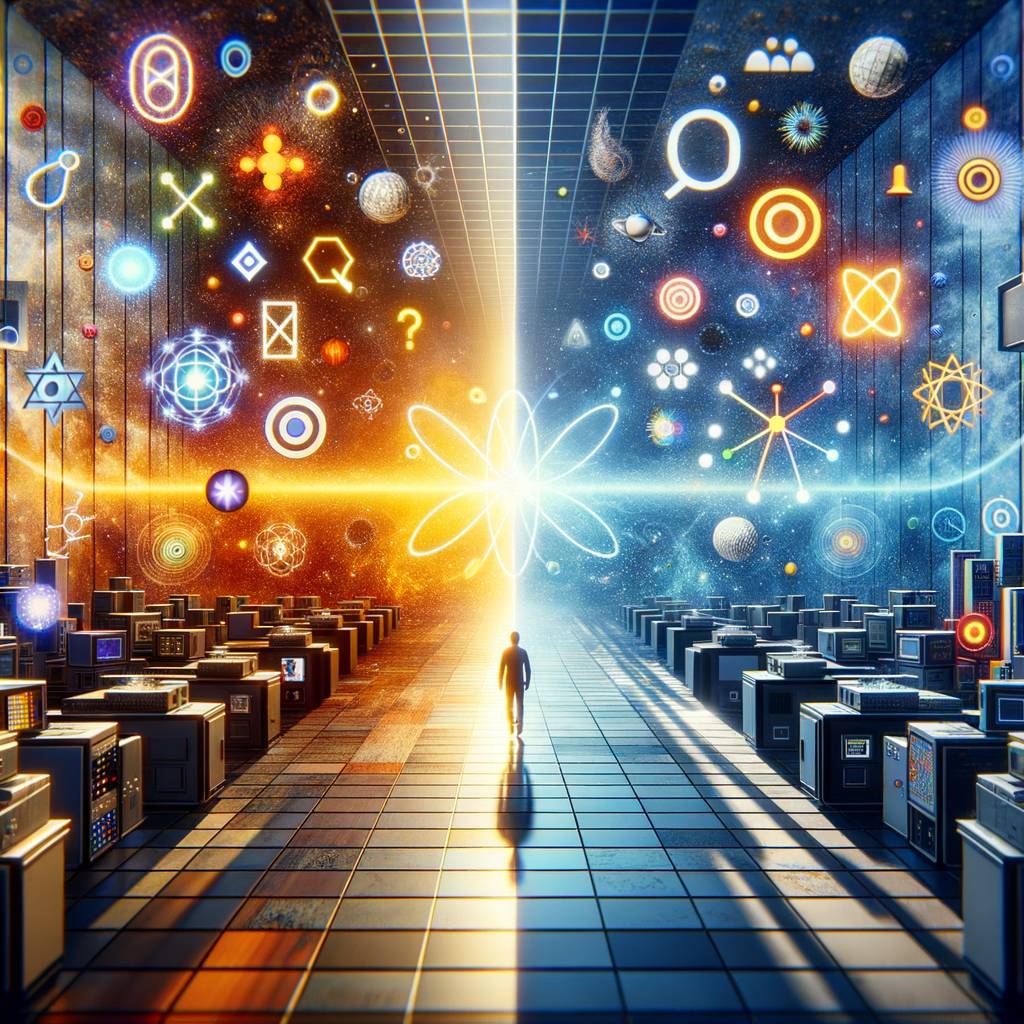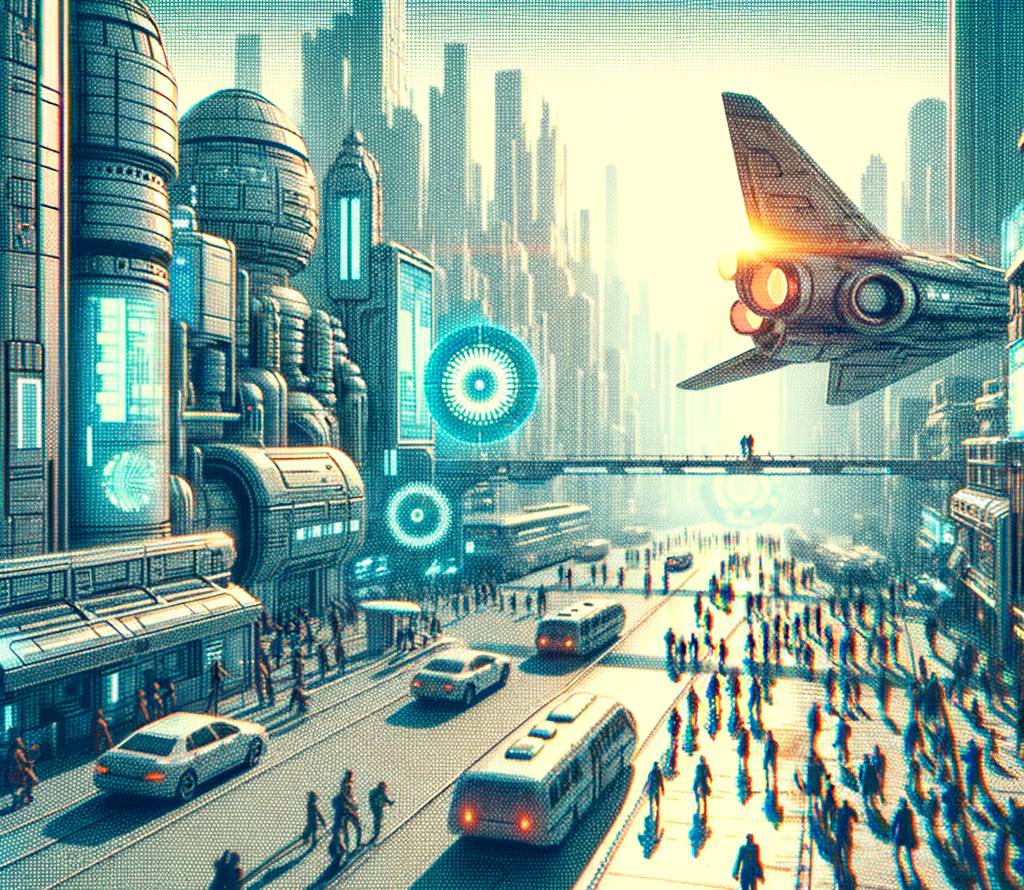Hard Sci-Fi Vs. Soft Sci-Fi: What’s the Difference?
Science fiction, a genre that has captivated audiences for decades, is a broad church with many sub-genres. Two of the most prominent are Hard Sci-Fi and Soft Sci-Fi. But what exactly differentiates these two categories? Let’s delve into the fascinating world of science fiction to find out.
Hard Sci-Fi: The Science in Science Fiction
Hard Sci-Fi is characterized by its rigorous attention to accurate detail in the physical sciences. It often involves complex scientific explanations and a focus on the technical aspects of a futuristic or alternative reality. The science in hard sci-fi is not just a backdrop; it is integral to the plot.
One of the most famous examples of hard sci-fi is 2001: A Space Odyssey by Arthur C. Clarke. The novel, and the subsequent film, are renowned for their scientific accuracy and detailed descriptions of space travel. As Clarke once said, “I don’t pretend we have all the answers. But the questions are certainly worth thinking about.”1
Soft Sci-Fi: The Human Element
Soft Sci-Fi, on the other hand, is less concerned with scientific accuracy and more focused on social sciences like psychology, sociology, and politics. It often explores the human condition and societal structures in a futuristic or alternative setting.
A classic example of soft sci-fi is Star Trek. While the series does feature advanced technology and space exploration, its primary focus is on the social and political interactions between species and cultures. As Gene Roddenberry, the creator of Star Trek, stated, “Star Trek was an attempt to say that humanity will reach maturity and wisdom on the day that it begins not just to tolerate, but take a special delight in differences in ideas and differences in life forms.”2
Hard Vs. Soft: A Matter of Balance
While the distinction between hard and soft sci-fi is clear, it’s important to note that these are not rigid categories. Many works of science fiction blend elements of both, striking a balance between scientific detail and social commentary.
For instance, The Expanse, a popular TV series and book series, combines detailed depictions of space travel (a hallmark of hard sci-fi) with complex political intrigue and character development (typical of soft sci-fi).
Conclusion: The Spectrum of Science Fiction
In conclusion, the difference between hard and soft sci-fi lies in the focus of the narrative. Hard sci-fi emphasizes scientific accuracy and technical detail, while soft sci-fi prioritizes social sciences and human interaction. However, many works of science fiction exist on a spectrum between these two extremes, blending elements of both to create rich, multifaceted narratives.
Whether you’re a fan of the meticulous scientific detail in hard sci-fi, or the exploration of societal issues in soft sci-fi, there’s no denying the immense appeal and diversity of the science fiction genre.
Footnotes:
1. Arthur C. Clarke, “Profiles of The Future: An Inquiry into the Limits of the Possible”
2. Gene Roddenberry, “Star Trek: The Making of the TV Series”



